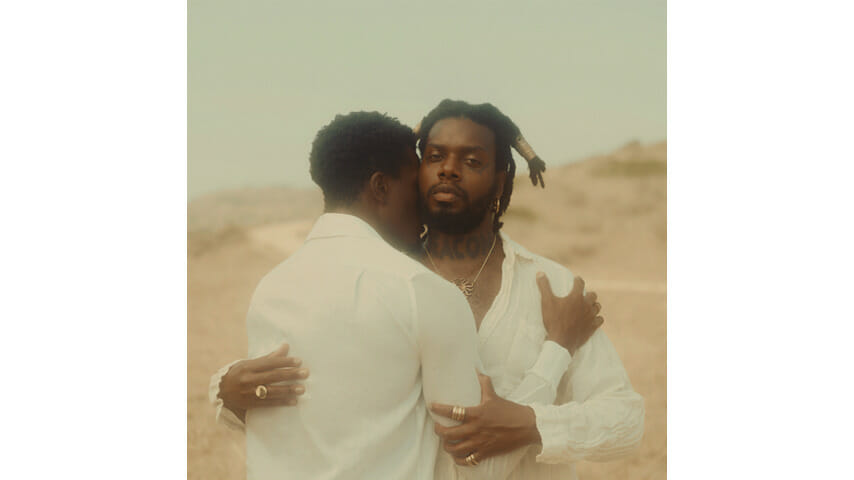serpentwithfeet Gorgeously Centers Black Queer Joy and Love on DEACON
The Ty Dolla $ign and Björk collaborator’s brief sophomore LP is his gentlest, warmest work yet

On DEACON, serpentwithfeet presents Black queer love and joy more as a series of little everyday moments than an all-consuming, mystical force. While vivid details and a Black queer foundation are nothing new for the Ty Dolla $ign and Björk collaborator—on “fragrant,” from his 2018 debut LP soil, he recalled asking all of his ex’s exes one by one to kiss him—the presence of unbridled joy and love on his sophomore album is a striking sea change. Where serpent mourned fizzling loves on soil and debut EP blisters, here, he hails the simple glories and everyday little moments of thriving Black queer romances. His perspective, though a stretch to read as some sort of overt or grand political statement, is a beaming needle in the ever-cluttered, often redundant haystack of romantic music.
DEACON’s bliss has roots in last year’s “Psychic,” a balmy devotional that ended serpent’s Apparitions EP. The album likewise continues the EP’s slow steps away from serpent’s longtime synthetic twistedness toward more soothing textures, and its wispier sounds, which are partially the genius of co-producers including Sampha, Batu and Lil Silva, are equal parts alive with the glory of love and hazy with the tranquility of waking up next to someone regret-free. It’s an album on which the song titled “Old & Fine” isn’t about intergenerational lust but serpent’s vision of a lifetime with his partner.
“Old” comprises silky midtempo bass, chime-like synths, air-thin snaps and not much else, and serpent’s alternatingly low- and high-pitched whispers largely guide the song. Here, it’s his partner’s tiniest actions that show him he’s found the one—leaving a kind note for a server, calling everyone’s mom “mama”—and make the story earnest and endearing. “Amir” is likewise all serenity, space and narrative minutiae, nylon guitar plucks and nimble synthetic percussion underpinning serpent’s simple, enlightening desire to “hear about your folks” and unfeigned enjoyment of a partner’s “corny jokes.” These are neither first-date questions, nor decades-together asks—on “Amir,” serpent is in that slightly mythical period between first making a connection and becoming fully intertwined with a partner. In illuminating such commonplace but meaningful romantic details, he breathes life into his music.